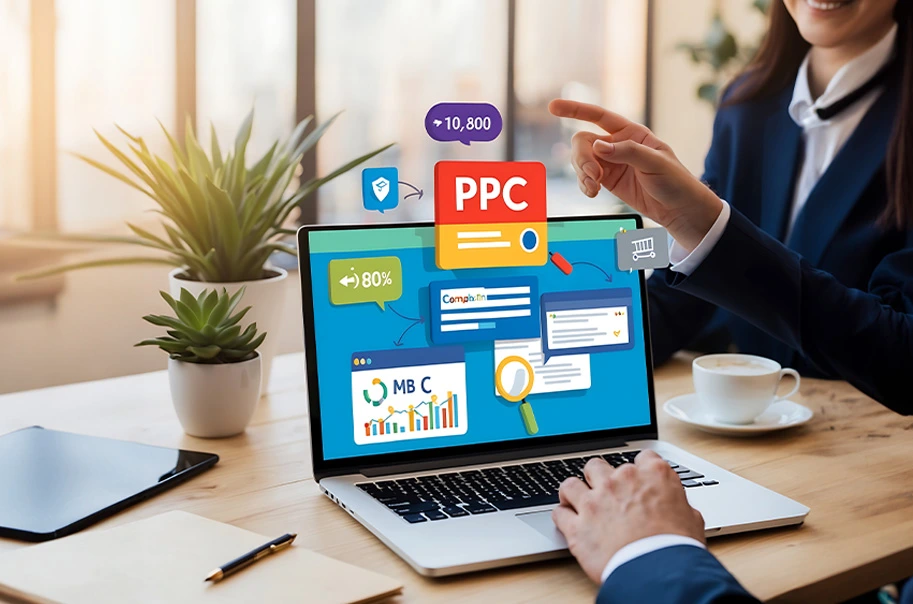WHAT IS PPC MARKETING
PPC stands for pay-per-click. PPC is a form of Internet Marketing where advertisers pay each time a user clicks on one of their ads.
The usual form of PPC advertising is through search engines, such as Google Ads, where advertisers bid on keywords and their ads appear at the top of search engine results pages (SERPs) when those keywords are searched for.
PPC advertising can also be done through social media networks, such as Facebook and Instagram, and through display advertising on websites
How does PPC work?
PPC advertising works by allowing advertisers to bid on particular keywords or phrases that they want their ads to appear for in search engine results. When a user searches for one of those keywords or phrases, the advertiser’s advertisement will appear among the top results. The advertiser is then charged a fee every time a user clicks on their ad.
PPC Marketing Benefits
Quick results: PPC ads can drive traffic to a website almost immediately, whereas SEO can take time to show results. Platforms usually approve advertisements the same day, providing maximum exposure almost immediately. This could be a text advertisement via Google search, an image ad through Instagram, or even a video featured on YouTube. Using multiple platforms in different formats can improve your brand’s visibility.
Reach your Targeted Audience: PPC advertising permits marketers to target specific demographics, interests, and locations, which helps to reach the right audience. You can even target individuals based on their behaviors and interests; Online community sites like Facebook can help you get your ad to the group that’s likely to convert into a sale.
 Measurable: PPC advertising provides assessable results. It permits marketers to track conversions, return on investment (ROI), and other key performance indicators (KPIs).
Measurable: PPC advertising provides assessable results. It permits marketers to track conversions, return on investment (ROI), and other key performance indicators (KPIs).
Cost-effective: PPC advertising can be more price-effective than traditional advertising methods, such as television or print ads, since marketers only pay when a user clicks on their ad, and they can set a budget for their campaign.
Branding: PPC advertising can help to improve brand awareness. Even if users don’t click on the ad, they may still see it and remember the brand
Complementing SEO: Pay-per-click can be used to supplement SEO efforts. While SEO focuses on increasing organic traffic, PPC can be used to drive instant traffic to a website while SEO efforts are still ongoing.
Track your goals: Tools such as Google Analytics can assist you in tracking your goals. See how your ads are performing in real-time, and decide what needs to get done to reach your goals more successfully
Reputation management: Pay-per-click can be used to bid on keywords matching a reputation event and directed to a landing page directly addressing the matter so you can control the narrative, instantly and professionally.
Overall, PPC advertising offers a cost-effective and measurable way to reach a targeted audience, generate leads and sales, and ultimately improve brand awareness.
